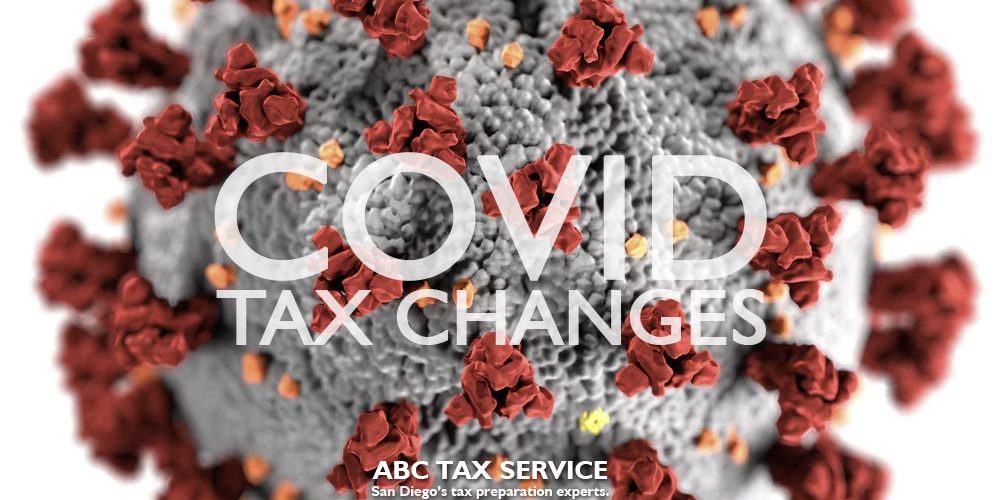How does COVID impact your tax return?
The COVID-19 outbreak has impacted your taxes in many ways. This is a fast-changing area of tax law. Check with us for the most recent developments. These rules are complicated, you need professional tax advice more now than ever. Here are some issues that may impact your tax return.
Getting More COVID Stimulus Money
The federal government issued two rounds of stimulus checks to most Americans. You may be able to get additional money once you file your 2020 tax return. Stimulus checks were based on your situation in 2019. Your 2020 income or dependents may have changed so you qualify for more stimulus money. The additional amount will be credited to your 2020 tax return. There is currently no pay-back if you received too much stimulus money. I have many clients who claim dependent children every-other year. One parent may have claimed the child in 2019 and received a stimulus payment. The other parent may receive additional stimulus money on that same child in 2020. It is unheard-of for the IRS to allow taxpayers to claim the same child two times. That appears to be the rule right now.
If your income was too high to qualify for stimulus money in 2019 but you suffered a loss of income great enough to qualify in 2020 then the stimulus money will be applied to the 2020 return. Once again, there is no pay-back for people who made more in 2020 over their 2019 qualifying amount.
There is no income tax on your stimulus money. However, if you owe money on your 2020 taxes and receive additional stimulus money the stimulus money will just reduce what you owe the IRS.
COVID-19 and Your Retirement Plan
Many Americans were forced to take premature distributions from their pension plans due to disruptions caused by the pandemic. Ordinarily there is a 10% penalty for premature distributions. The federal government has waived the penalty. However, you still have to pay the income taxes on the money you took out. In many instances the tax bite can be spread out over three years. This may help reduce the tax burden by paying less tax each year at a lower rate. This is not automatic. You need to file special tax forms to gain beneficial treatment. We can help.
Sick-Leave Benefits for Self-Employed People
If you own your own a business you do not get paid for sick days. Under new federal regulations tax credits may be available to self-employed individuals who were unable to perform their regular job due to COVID-19. You can even receive tax credits if your children’s school was closed and you had to take time away from work for distance learning. Check with us to see if you qualify.
Deducting Expenses Forgiven by PPP Loans
Many small businesses took advantage of the loans available under Paycheck Protection Program (PPP). Many businesses had these loans forgiven so the money will not have to be paid back. Ordinarily, if a loan is forgiven it is deemed as taxable income. In this case, the forgiven loan is not taxable for federal tax purposes. The IRS originally declared that if you had expenses which were offset by the PPP loan you could not claim those expenses as a deduction on your tax return. The feds recently decided that all of your deductions are allowable even it they were paid by your PPP loan. California has not agreed to this at all. Under California law small businesses cannot deduct expenses paid by a PPP loan. Taxpayers will have to make adjustments to their state tax return and pay additional tax on their PPP loan.
There are so many tax changes due to the pandemic. This is just a small sampling of how this sweeping legislation may impact your taxes. Contact us for additional information about how you may be able to save money on your taxes.








